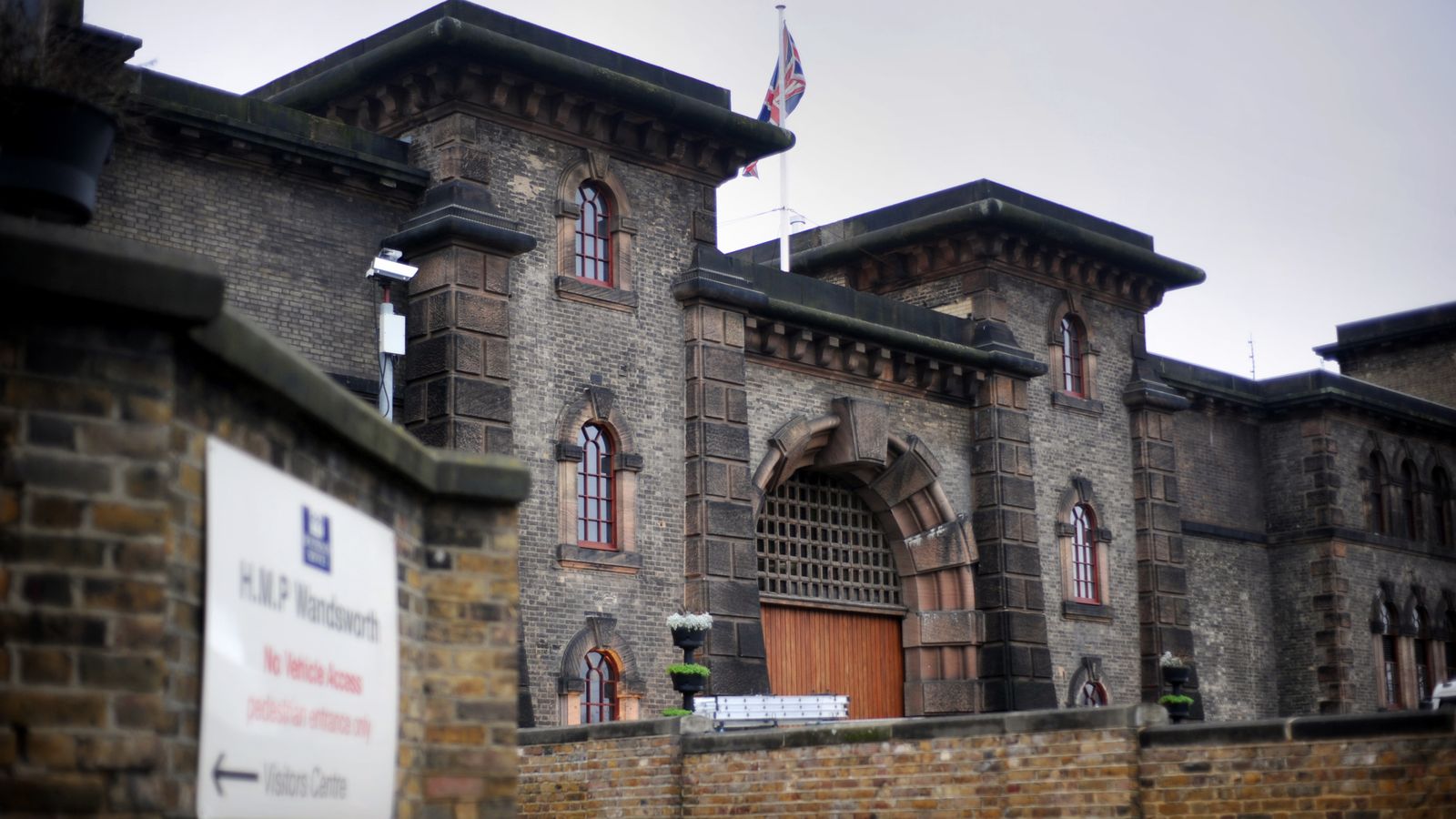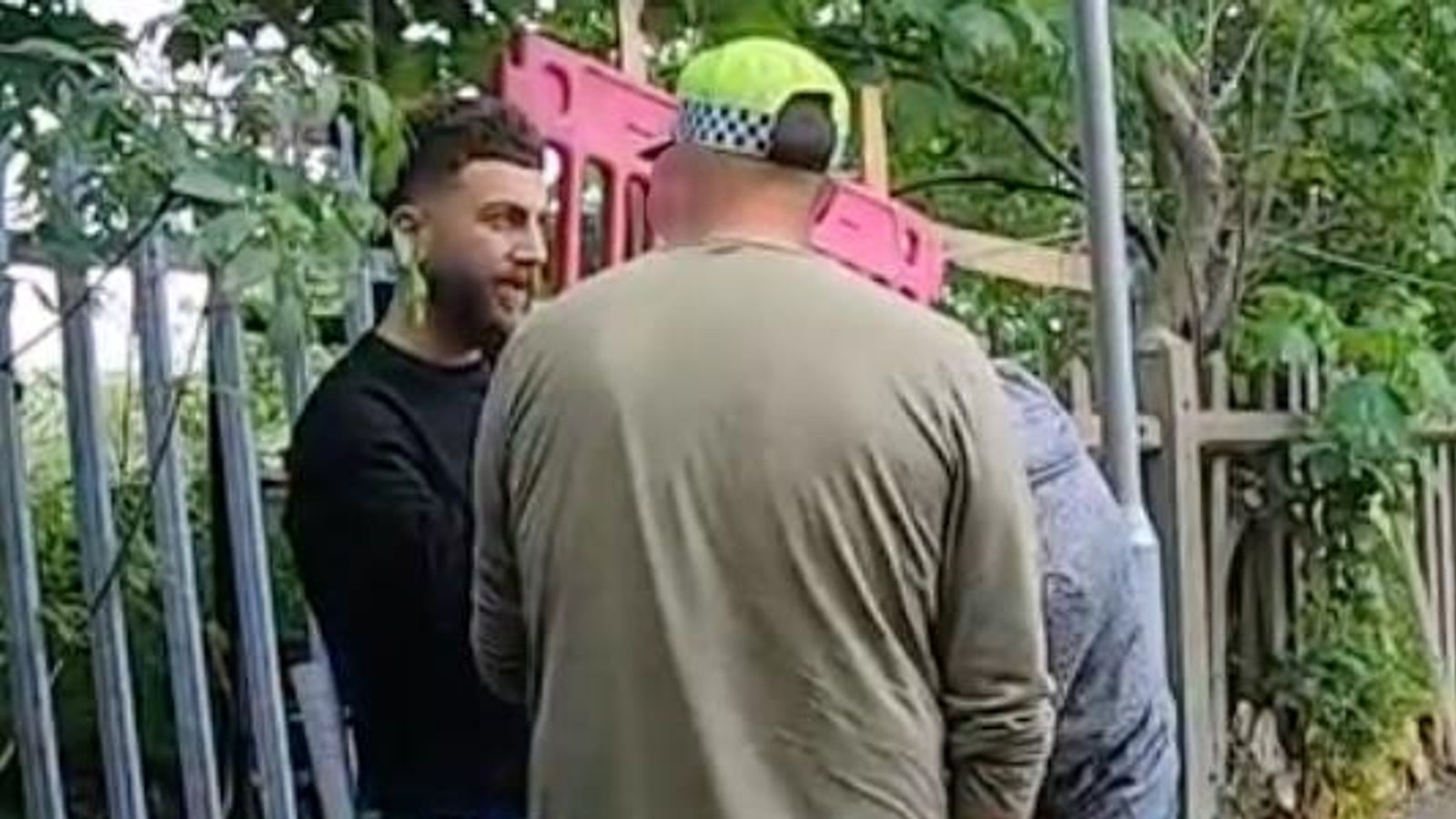The jail from which terror suspect Daniel Abed Khalife escaped “really needs closing ultimately”, the chief inspector of prisons has said.
Speaking to Sky News’ Politics Hub with Sophy Ridge, Charlie Taylor said there was a “crisis” in large institutions like Wandsworth prison in south London due to a lack of places and staff, and the “churn” of inmates “adds to the general complications and sometimes what feels like chaos”.
His remarks come as the manhunt continues for 21-year-old Khalife, who broke out of the Category B prison by holding on to straps underneath a food truck.
Politics Hub: Follow the show with live updates here
There have still been no confirmed sightings of the former soldier and police have said it is possible he has already left the country – though more than 150 counterterrorism officers and staff are focusing their search efforts in the Kingston and Staffordshire areas.
The incident soon turned into a political row, with Labour attacking the government for a lack of investment into public services – a hot topic in Westminster following the concrete crisis in schools.
But ministers have accused the opposition of playing politics, and promised to open formal inquiries into the escape.
Daniel Abed Khalife: No confirmed sightings of Wandsworth prison fugitive despite dozens of calls from public
Daniel Abed Khalife: ‘Strapping’ found under van in hunt for fugitive ex-soldier after Wandsworth Prison escape
The notorious prison breakouts of IRA men, a Soviet spy and one of the Great Train Robbers
Please use Chrome browser for a more accessible video player
Mr Taylor – who is appointed by the justice secretary to inspect prisons in both England and Wales – said the situation with Khalife was “enormously concerning”.
“When you find a prison like Wandsworth, it really needs closing ultimately, it is not a suitable prison,” he told Politics Hub.
“In an ideal world one would [close it], but of course you need jails because you need to service the courts.
“We’ve actually got a crisis at the moment in prisons just in terms of population and places, so there are only just enough prison places available at the moment for the number of prisoners who are coming in, but of course that puts a huge strain on the system.”
Please use Chrome browser for a more accessible video player
Speaking specifically about Wandsworth, the chief inspector added: “You are getting people in, you are getting them to court, you are getting them back from court and then as soon as they’ve been sentenced, they are being moved on to another jail as quickly as possible.
“And it is something about that churn that also adds to the general complications and sometimes what feels like chaos in some of those big local prisons like Wandsworth.”
Mr Taylor also pointed to issues around staffing levels at the prison, which he said had been a “huge concern” in recent inspections – with 30% of employees unavailable for full duties.
He claimed it led to a “danger of losing control”, adding: “If you haven’t got enough staff to get the basics right, there is always a danger that people will drop the ball and make a mistake.
“if there aren’t enough staff in place – and that is something we flag up a lot – things just can begin to go a bit wrong.”
Please use Chrome browser for a more accessible video player
The chief inspector also claimed Wandsworth, which was built 170 years ago, was in a “real state” and wasn’t designed to hold “nearly as many men who are locked up there as there are now”.
He added: “The issue is these people are coming out one day and the idea that you are rehabilitating people by banging them up behind a door for 22 hours a day is simply fanciful.”
Mr Taylor appealed to the government to look into funding to improve prisons – although he accepted it may not be the first priority for the public.
“If you ask people if they would like more money spent on the NHS or on schools or on roads, or money to be spent on prisons, I think it is fairly obvious what the answer would be,” he added. “People don’t like prisoners so much and they are frightened of crime.
“[But] if we want people to come out from prison and to stop offending, then we need to do more for them when they are locked up, which means giving them the skills they need, it means putting them on the right sort of programmes, it means getting them into the good habits of work so when they come out they don’t create more victims, they don’t cause trouble in their communities and they take their place back in society as hard working tax working people.
“At the moment what we are seeing is just that churn, that revolving door of those people in and out of prison often for many many years.”










